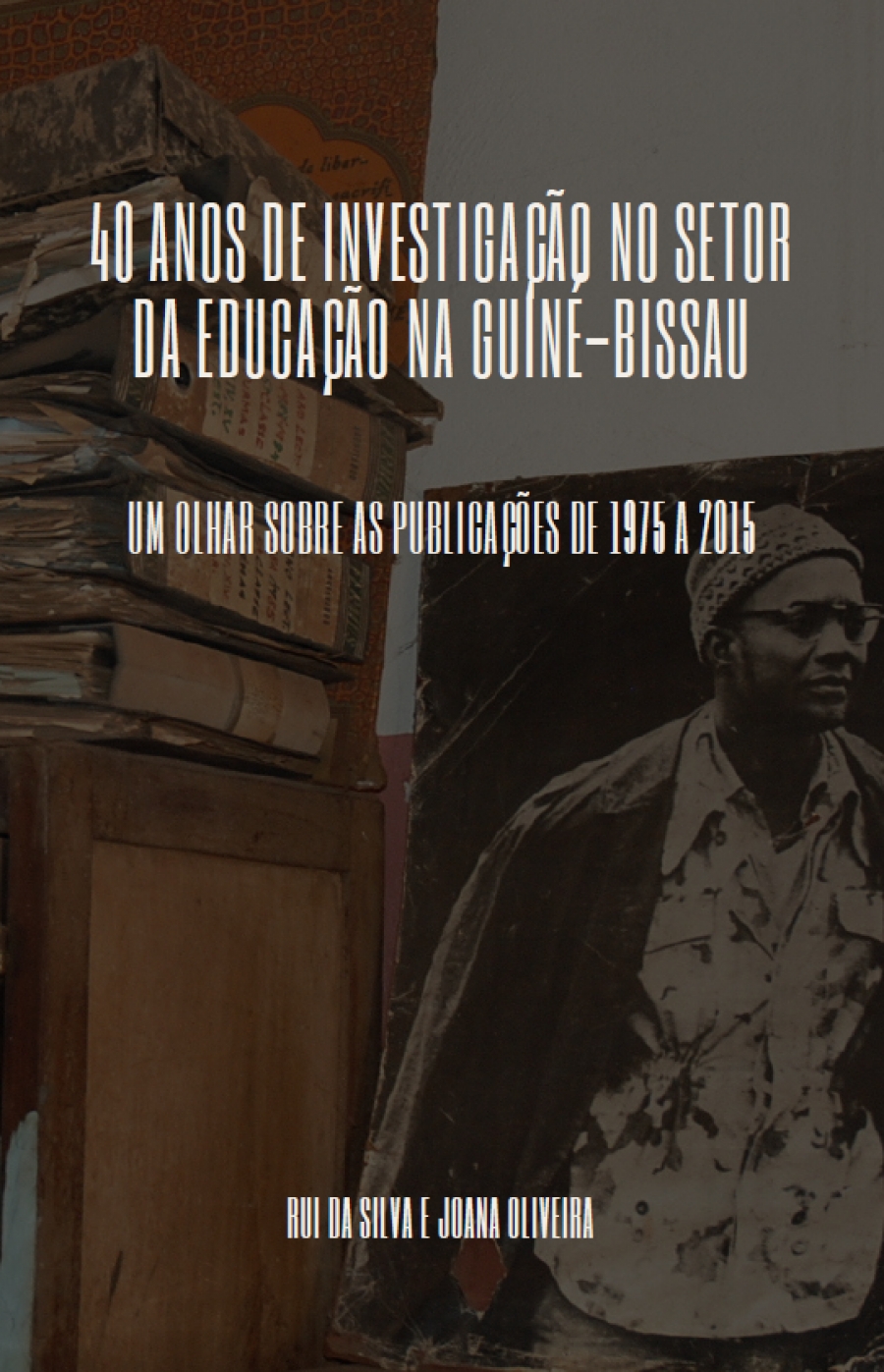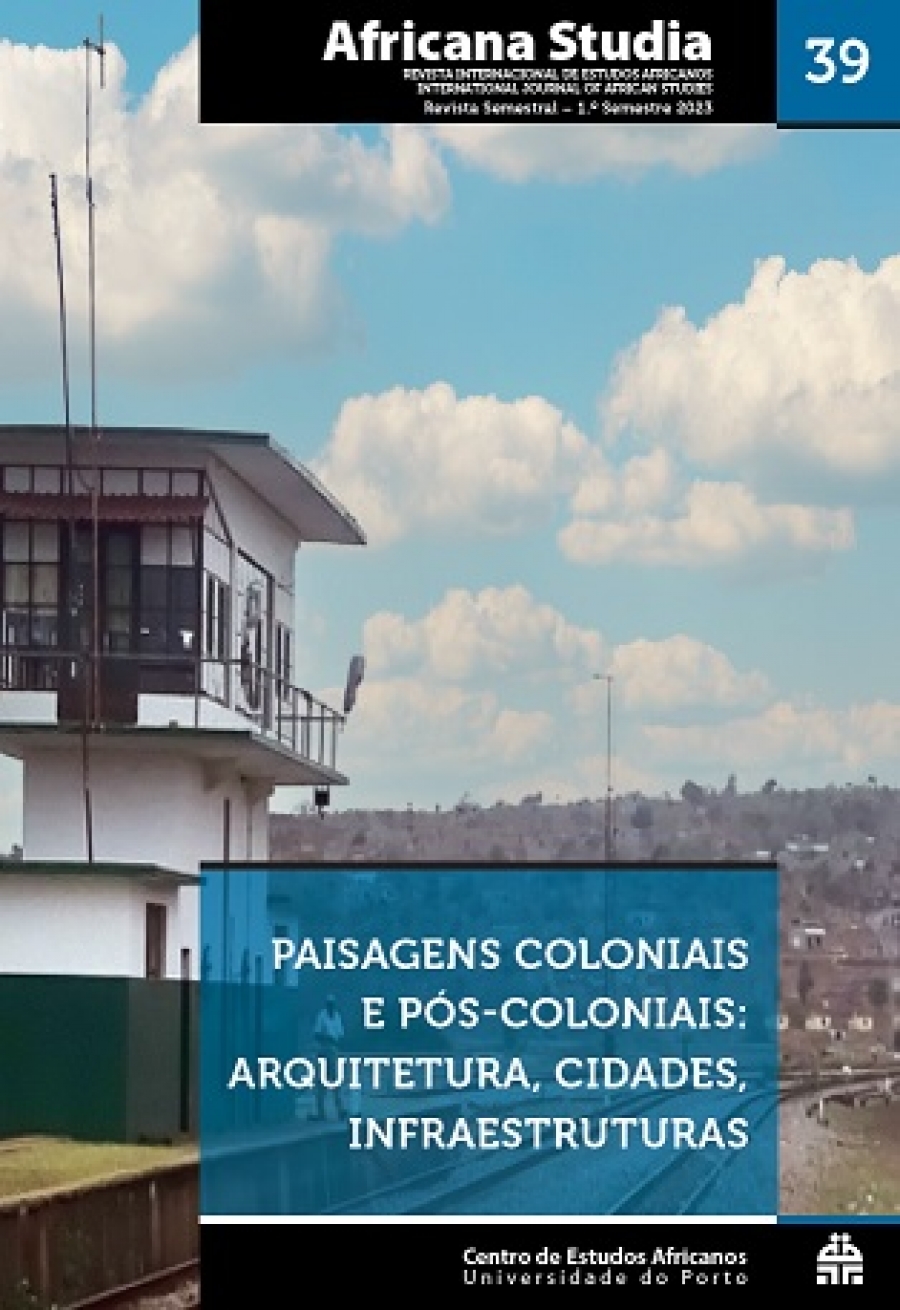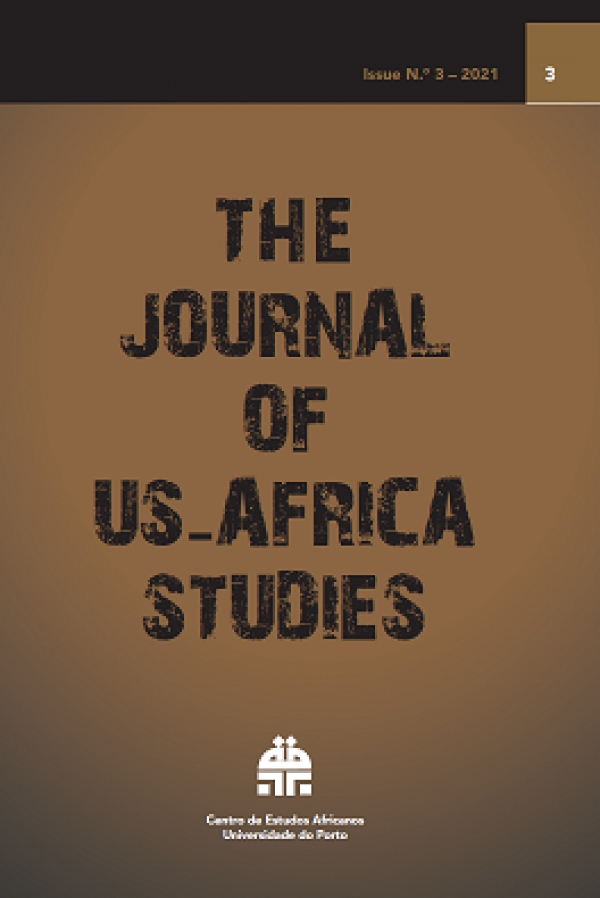Índice
- Editorial (pág.5)
- US-AFRICA
- M’lili Amina - American Grand Strategy in Africa: From Hegemony to the Balance of Power? (p.12)
- Jorge Teixeira - The United States, Iran’s Revolution, and the USSR Communist Phantom: The Linchpins that Triggered the Emergence of the Moroccan “Modern” Armed Forces from 1979 to 1982? (p.28)
- Abdulhafeth Ali Khrisat - African-American Identity in Toni Morrison’s Beloved (1987) (p. 60)
- AFRICAN ISSUES
- Augusto Nascimento - Eleições presidenciais de 2021 em São Tomé e Príncipe: “Povo põe, Povo tira”, “povo tira, povo põe” (p. 82)
- Thibaut Dubarry - Pentecôtisme et sida. Illustration des relations entre religion et santé à la lumière de trois Églises dans deux townships sud-africains : entre métamorphoses et ambivalence (p. 114)
Editorial
“On balance the United States has done fewer bad things in Africa than she has done in Asia and Latin America. But she has also done fewer good things in Africa than elsewhere”.1
Coming from a 1989 textbook on African politics, this overview still stands to encompass much of the current US-Africa relationship. With the exception of what concerns two or three oil-State producers of the continent and Egypt because of its peace treaty with Israel, whatever indicator is considered (Africa’s share in the US trade, American FDI or White House policies) it shows a decreasing trend since the end of the socalled Cold War.
The decreasing trend is part of the relative fall of the continent’s weight in the world market. In fact, “Africa’s share of global trade at 3% is too little”2. Capital exports to Sub-Saharan Africa are always smaller than to anywhere else, regardless of its absolute increase. For instance, between the 1980s and the 1990s, net foreign direct investment (FDI) to the region grew by 218 p.c. but 993 p.c. in East Asia, 556 in Latin America and 755 in the “developing countries”. Africa’ share of FDI for this class of countries dropped from 19 percent in the 1970’s to 3 in the 1990s 3.
As capitalism works now with the USA absorbing much of the world capital flows, it is not surprising that her contribution to Africa’s investment is irrelevant. For an order of magnitude, suffice it to say that since the peak year of 2013 to 2022, the net accumulated US FDI for the whole Sub-Saharian region (including the oil-producing states) is 63 USD billion, the equivalent of 57 percent of the foreign net purchase of US long term securities ($110,5 bn.) during the last month of March4.
Still, this is not the whole picture. Today’s little status of Africa for US business does not mean that its non-tapped resources or its location close to Europe and the Middle East are to be Washington-neglected. African issues are once again recovering geopolitical importance. Similarly to what happened during the 1970s, i.e. the period during which African staff finally got an autonomous division within the State Department, the new overvaluation occurs because new “threats” were noticed.
To begin with, no former colonial power is now economically dominant in Africa. Former colonial powers used to act as proxies of US interests, even when frictions or diplomatic drawbacks arose from time to time (Washington meddlings in Françafrique policies, diplomatic side effects induced by the Pentagon’s support of Portuguese colonial policies, clashes over French and Italian interests in Morocco and Lybia, etc.). Today, all this is dwindling because China is Africa’s most important partner.
Between 2000 and 2010, its trade grew more than 10-fold, being around $200 bn in 2012. Besides, China is not just a trading partner: according to the Organisation for Economic Co-operation and Development, for every 1 percent rise in China’s GDP, the GDP of low-income African countries such as the DRC, Guinea, and Mali rises by 0.3 percent5, which means that Chinese influence is therein to stay.
Added to this, there is the backflow to Africa from the recent imperialist wars in the Middle East (Afghanistan, Iraq, and Syria) and the regime change policies (Lybia). Small and big waves of jihadist movements combined with the French/UE military failure in the Sahel countries and later in Mozambique are another headache for the State Department. If this was not enough to justify a US comeback 2022-23 saw another backflow from a distant chessboard: the Russian (Wagner Group) filling of the French-growing vacuum in Central Africa.
Within this framework, one can say that the articles published in the core section of this 3rd issue do cover the most visible side of the US role in Africa: its “boy-scout” mission.
M’lili Amina’s “American Grand Strategy in Africa: From Hegemony to the Balance of Power?” attempts to describe the US’s recent geopolitical strategy face to newcomer “dangers”.
Jorge Teixeira’s ‘The United States, Iran’s Revolution, and the USSR Communist Phantom: The Linchpins that Triggered the Emergence of the Moroccan “Modern” Armed Forces from 1979 to 1982?” focus on the comparative US policies towards Iran and Morocco and shows how both fit into a pattern.
With Abdulhafeth Ali Khrisat’s “African-American Identity in Toni Morrison’s Beloved (1987)”, one finds a different angle of the US-Africa relationship: the slavery-forged bonds. Needless to stress how much did the Afro-American struggles and their quest for cultural identity impact US and African politics, from Liberia to TV series. By analysing an important example of these cultural ties, Khrisat shows the broadness of the traditional side of the US soft power in Africa.
Out of the direct US-Africa section, this journal includes two sociological studies.
Augusto Nascimento’s “Eleições presidenciais de 2021 em São Tomé e Príncipe: “Povo põe, Povo tira”, “povo tira, povo põe” focus on the Sao Tome’s electoral process, arguing that it allows for an overall understanding of the island’s political society. Thibaut Dubarry’s « Pentecôtisme et sida. Illustration des relations entre religion et santé à la lumière de trois Églises dans deux townships sudafricains: entre métamorphoses et ambivalence » also uses an apparently marginal phenomena (African Pentecostal churche’s stand towards AIDS) to highlight features of the South African society. As in previous issues of this journal, this section aims to enlarge the interdisciplinary scopus of the US-Africa Journal. To allow for a wider range of collaborations the editorial project includes since the last issue
papers written in two more African official languages (French and Portuguese).
Maciel Santos*
* Center of African Studies/ University of Porto / CEAUP
1 Mazrui and Tidy; Nationalism and New States in Africa, 1989: 363.
2 CNN, Interview with Okonjo-Iweala, Director of the WTO, 28Th November 2022 https://edition.cnn.com/2023/02/02/business/wto-okonjo-iweala-africa-trade-spc-intl/index.html
3 Asiedu, Policy Reform file:///C:/Users/Utilizador/Downloads/9781589062627-ch07.pdf
4 Based on US Department of Treasure https://tradingeconomics.com/united-states/capitalflows
5 Njau, Barbara (2013), China redefines its Role in Africa https://www.fdiintelligence.com/content/locations/asia-pacific/china/china-redefines-its-role-in-africa-45992
Editor
Centro de Estudos Africanos da Universidade do Porto
FLUP – Via Panorâmica s/n 4150-564 Porto
Director: Mourad Aty
Editorial Office: Carla Delgado
Graphical Review: Henriqueta Antunes
Email: Esta dirección de correo electrónico está siendo protegida contra los robots de spam. Necesita tener JavaScript habilitado para poder verlo.
Periodicity: yearly
ISSN: 2184-6251
ISSN Eletrónico: 2975-8513
DOI: https:doi.org/10.21747/21846251/jour3
Webpage: https://www.africanos.eu/index.php/en/editions/the-journal-of-usafrica-studies-tjusas
Layout Design: Fátima Marques
Cover Design: Mourad Aty
The Journal of US-Africa Studies is an international, academic and interdisciplinary journal published in Portugal by the Center of African Studies of the University of Porto (CEAUP). TJUSAS publishes original, peer reviewed and high quality articles which may contribute in a novel way to deal with the US-Africa social and political relations. It is meant to address the US policies towards the continent and to advance knowledge of the different geopolitical regions along with many other US-Africa bilateral political, economic, social and cultural relations. The journal is published yearly where the editorial project focuses on three major sections in each issue: US-Africa, African Issues and Commentary.
Scientific Board
Antonino Adamo (National Research Council CNR – Italy)
Benoit Gaudin (Université de Versailles Saint-Quentin-en-Yvelines – France)
Bidisha Biswas (Western Washington University – USA)
Dmitri M. Bondarenko (Russian State University for the Humanities – Russia)
Christa Jones (Utah State University – USA)
Emmanuel Tchumtchoua (Université de Douala – Cameroon)
Francisco Topa (Universidade do Porto – Portugal)
Jacinto Rodrigues (Universidade do Porto – Portugal)
Jaime Rodrigues (Universidade Federal de São Paulo – Brasil)
Maciel Santos (CEAUP – Portugal)
Madalina Florescu (CEBRAP – Brasil)
Sergey V. Kostelyanyets (Peoples’ Friendship University of Russia – Russia)
Shay Welch (Spelman College – USA)
Tatiana Smirnova (University of Florida – USA)
T. P. Wilkinson (Universidade do Porto – Portugal)
Editorial Board
Carla Delgado (CEAUP – Portugal)
Deepak Bhaskar (Daulat Ram College, University of Delhi – India)
Flora Oliveira (CEAUP – Portugal)
Sylvie Lembe (CLESID – Université Jean Moulin, Lyon – France)
Total or partial reproduction or copying of the content of this publication (in paper or electronic version) is strictly prohibited without prior written consent and authorization from CEAUP.




